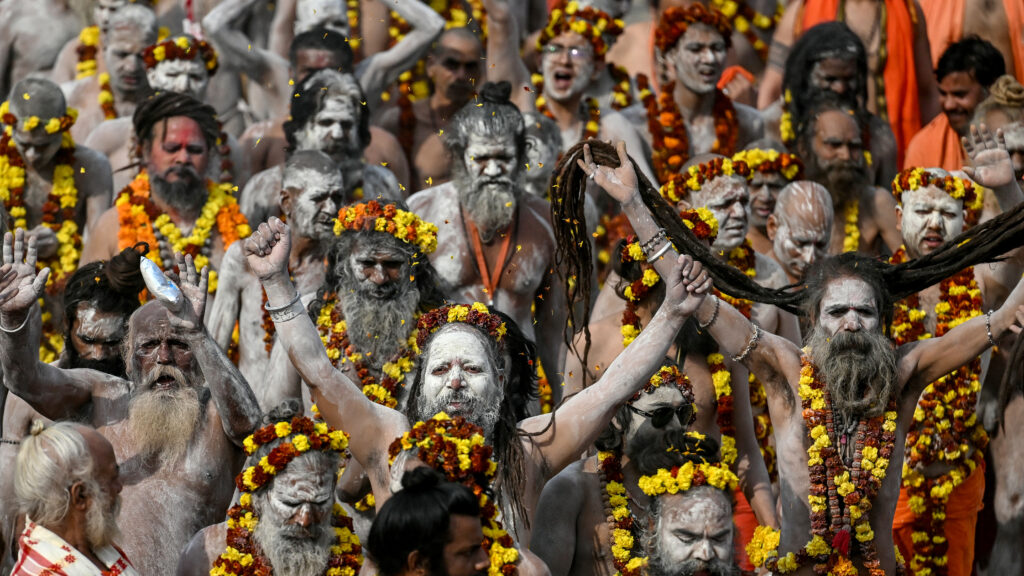Nepal’s Supreme Court has ruled that naked Hindu holy men need not wear clothes to attend a revered temple, declaring that their age-old tradition of nudity is not obscenity.The ash-smeared and dreadlocked ascetics known as Naga sadhus — devotees of the Hindu deity Shiva who renounce their family and worldly possessions, including clothing — said on Wednesday that they welcomed the top court decision.”I want to thank the Supreme Court,” said 45-year-old Eakadasa Baba, who had walked from neighbouring India on a pilgrimage to the Pashupatinath temple, among the most sacred sites for Shiva followers.”It does not mean we roam around the city or villages without clothes. We remain unclothed only in our own place, within the temple,” the Naga sadhu said.The ruling dismissed a petition seeking to bar them from the temple in Nepal’s capital Kathmandu that argued their public nudity disturbed other devotees.”Nudity and obscenity are not the same,” the court said in its ruling, which was made last year but only published this week, according to court spokesperson Nirajan Pandey.”Nudity, when practised as part of religious or cultural tradition, cannot automatically be considered offensive.”Each year, hundreds of Naga sadhus travel to Kathmandu for the Maha Shivaratri festival celebrations at the Pashupatinath temple. Some stay on and live on the temple premises.The court said that banning their entry would violate both national and international protections of religious freedom.Despite the petition, Rajendra Giri, 51 year-old Nepali Naga sadhu, said the tradition does not “disturb” anyone.The holy men typically travel from India for the festival, which falls in February or March. The temple provides them food and a travel allowance.”They have designated spaces and follow strict disciplines,” cultural historian Govinda Tandon said.”As the court rightly noted, their nudity is not obscenity, it’s a core part of the Naga tradition.”
Nepal’s Supreme Court has ruled that naked Hindu holy men need not wear clothes to attend a revered temple, declaring that their age-old tradition of nudity is not obscenity.The ash-smeared and dreadlocked ascetics known as Naga sadhus — devotees of the Hindu deity Shiva who renounce their family and worldly possessions, including clothing — said on Wednesday that they welcomed the top court decision.”I want to thank the Supreme Court,” said 45-year-old Eakadasa Baba, who had walked from neighbouring India on a pilgrimage to the Pashupatinath temple, among the most sacred sites for Shiva followers.”It does not mean we roam around the city or villages without clothes. We remain unclothed only in our own place, within the temple,” the Naga sadhu said.The ruling dismissed a petition seeking to bar them from the temple in Nepal’s capital Kathmandu that argued their public nudity disturbed other devotees.”Nudity and obscenity are not the same,” the court said in its ruling, which was made last year but only published this week, according to court spokesperson Nirajan Pandey.”Nudity, when practised as part of religious or cultural tradition, cannot automatically be considered offensive.”Each year, hundreds of Naga sadhus travel to Kathmandu for the Maha Shivaratri festival celebrations at the Pashupatinath temple. Some stay on and live on the temple premises.The court said that banning their entry would violate both national and international protections of religious freedom.Despite the petition, Rajendra Giri, 51 year-old Nepali Naga sadhu, said the tradition does not “disturb” anyone.The holy men typically travel from India for the festival, which falls in February or March. The temple provides them food and a travel allowance.”They have designated spaces and follow strict disciplines,” cultural historian Govinda Tandon said.”As the court rightly noted, their nudity is not obscenity, it’s a core part of the Naga tradition.”
